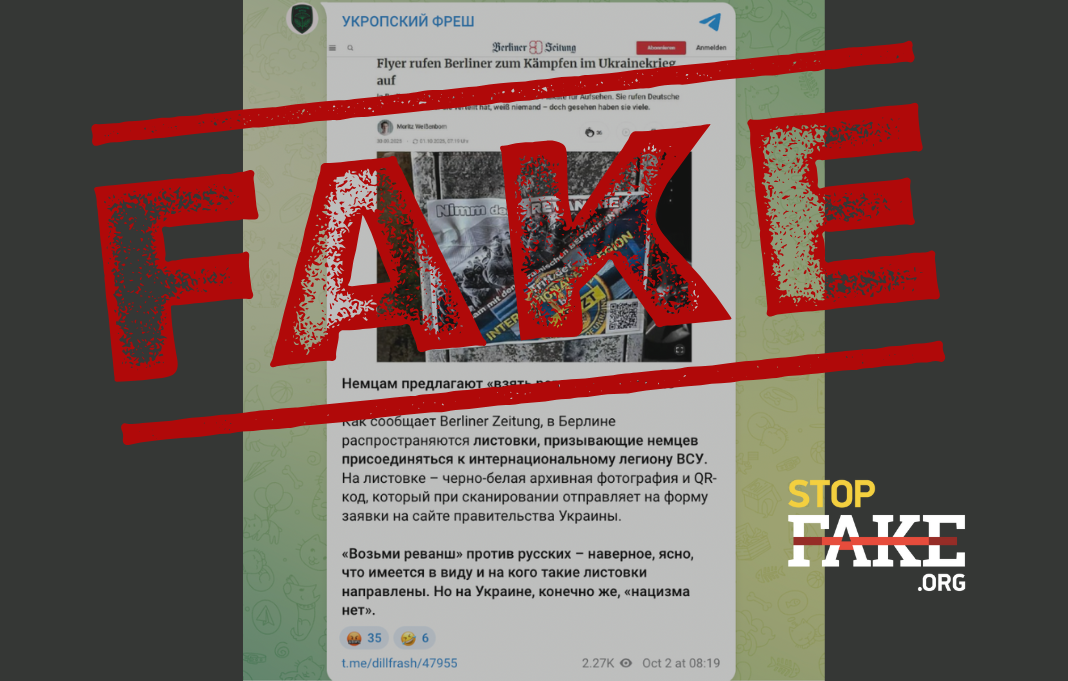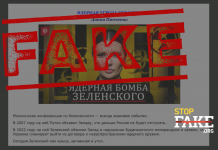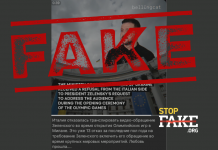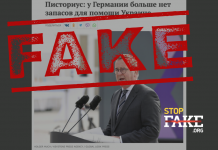The International Legion firmly denied any role in the appearance of the leaflets. Their limited distribution — confined to a single district of Berlin — points to a staged provocation designed to discredit Ukraine and its armed forces.
Posts circulating online claim that Ukraine’s International Legion is recruiting Germans by distributing leaflets urging them to «take revenge» on Russians. The flyers, which include a QR code linking to the Legion’s application form, feature an image of emaciated German prisoners of war from World War II.
«Take revenge on the Russians» — that’s how propaganda outlets are framing the message, suggesting that Ukraine is allegedly appealing to Nazi-era sentiments within German society.

Berliner Zeitung reported that the leaflets appeared in Berlin’s Charlottenburg-Wilmersdorf district. However, the outlet has faced repeated criticism for inadequate fact-checking and insufficient verification of sources and commentary.
According to Berliner Zeitung, residents of the district began finding leaflets urging Germans to join the International Legion in mid-September. The article points out that under German law, recruiting citizens into foreign armed formations constitutes a criminal offense. However, the reporters made no attempt to contact the International Legion for comment or to verify whether it had any connection to the materials.
German journalist Markus Heinz said a witness had contacted him after seeing a young man putting up the leaflets. Heinz filed a criminal complaint with the Berlin prosecutor’s office, calling the use of an image of German prisoners of war «cynical and deeply disrespectful.»
Notably, the leaflets appeared only in a single Berlin district and carried an overtly propagandistic message — an appeal to a «sense of revenge.» The limited distribution and inflammatory tone suggest a calculated provocation aimed at discrediting Ukraine and the International Legion.
The press service of the International Legion of Defence of Ukraine told StopFake it had no connection to the creation, distribution, or promotion of the leaflets.
Such incidents are part of a broader pattern. In recent months, Ukraine, its citizens, and the Ukrainian diaspora abroad have increasingly faced provocations. At the end of August 2025, for example, forged leaflets appeared in Latvia, falsely attributed to the Ukrainian diaspora, urging the preservation of Russian-language education. The materials were designed to mimic legitimate Ukrainian organizations, amplifying the discrediting effect. As with the Berlin leaflets, the tactic involved placing propaganda in public spaces to sow distrust toward the Ukrainian community.
The International Legion has long been a target of Kremlin propaganda. Earlier, allegedly AI-generated images circulated online, purporting to show the Legion’s recruitment campaigns. These fakes claimed the Legion offered «1,000 burritos» per month to Colombian mercenaries or was enlisting homeless Americans with promises of high pay and medical insurance.





